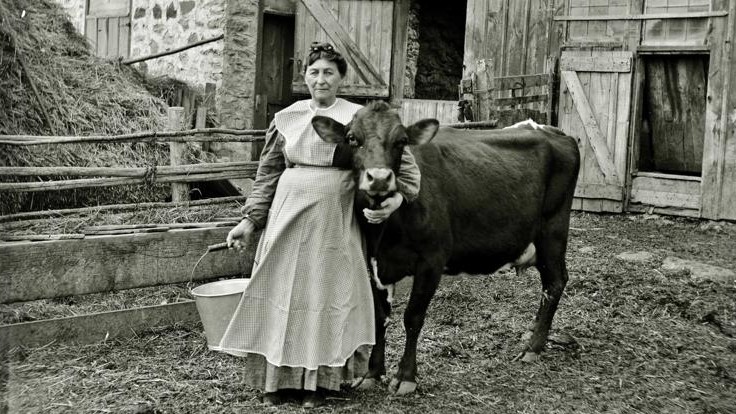The Decimation of Family Farms: A Historical Perspective
In a mere few generations, the rise of factory farming has devastated the landscape of American agriculture. T. H. Harbinger’s historical novels reveal how USDA’s partnership with Big AG corporations has eroded our food and our enivronment. r

The US Department of Agriculture's recent Census of Agriculture, a comprehensive report released every five years, provides a stark snapshot of this evolution. It reveals not only the expansion of mega factory farms but also the consequent environmental, societal, and ethical implications.
The Decimation of Family Farms: A Historical Perspective
T. H. Harbinger's historical novels, notably "The Farm Program" and "America's Dairyland," (https://www.insightsoninnovation.net/farmingandfood) serve as poignant chronicles that delve into the roots of this seismic shift in American agriculture. Through the lens of engaging narratives and well-researched historical accounts, Harbinger's books unravel the intricate dance between policy decisions and the fate of family farms.
The 4Cs: Clearly articulate the role of T. H. Harbinger's novels in illustrating historical shifts, be concise in connecting policy decisions to the fate of family farms, present compelling insights from the novels, and establish credibility through the historical accuracy portrayed in the books.
The Farm Program: A Guided Tour of Policy Impact
Harbinger's "The Farm Program" is a literary tour de force that navigates the twists and turns of American farm policy from the era of Richard Nixon through Ronald Reagan. The novel unfolds the complexities and unintended consequences of the 1973 Farm Bill, a pivotal moment that set the stage for the gradual sidelining of family farms in favor of corporate behemoths.
Star-Story-Solution: Dive into the narrative of a fictional family, the Andersons, whose struggles and triumphs mirror the real-world impact of the 1973 Farm Bill. Through their journey, readers witness the ripple effects of policy decisions on the very fabric of rural America.
America's Dairyland: Udder Truths Unveiled
In "America's Dairyland," Harbinger turns his attention to the dairy industry, providing an udderly enlightening exploration of how policy decisions have transformed the once-thriving landscape of family-owned dairies. The book lays bare the challenges faced by these farms in the wake of policies that inadvertently favored corporate interests.
The 4Cs: Clearly outline the focus of "America's Dairyland" on the dairy industry, be concise in detailing policy impacts on family-owned dairies, present compelling narratives that resonate with real-world challenges, and establish credibility through the thorough research reflected in the book.
Harbinger's Warning: A Call to Understand the Past
As the Census of Agriculture unveils the contemporary reality of mega factory farms, Harbinger's novels serve as a poignant warning to understand the roots of this transformation. The historical narratives not only shed light on the mistakes of the past but also prompt a reflection on the future trajectory of American agriculture.
The 4Cs: Clearly emphasize the role of Harbinger's novels as a warning, be concise in connecting historical narratives to contemporary challenges, craft compelling insights that encourage reflection, and establish credibility by showcasing the foresight depicted in the books.
Continuation: Lessons for Today's Farmers and Policymakers
The tales woven by T. H. Harbinger hold invaluable lessons for today's farmers and policymakers grappling with the realities of mega factory farms. Understanding the historical context of agricultural policy shifts can empower stakeholders to make informed decisions that prioritize sustainability, equity, and the preservation of family-owned farms.
Harbinger's narratives underscore the need for nuanced approaches to farm policy, ones that balance economic imperatives with environmental stewardship and social responsibility. By heeding the warnings embedded in these literary works, there is an opportunity to course-correct the trajectory of American agriculture, ensuring a future where family farms thrive alongside responsible agricultural practices.
Conclusion: Navigating the Crossroads
In the intersection of historical fiction and contemporary reality, T. H. Harbinger's novels stand as guides, urging readers to navigate the crossroads of American agriculture with wisdom gleaned from the past. As America grapples with the implications of mega factory farms, the lessons embedded in these literary works become more than stories; they become beacons illuminating a path towards a more sustainable and equitable future for American farming.
As policymakers weigh the implications of the latest Census of Agriculture and farmers confront the challenges of modern agriculture, the narratives penned by Harbinger serve as a reminder of the interconnectedness of past, present, and future in shaping the destiny of American agriculture. It's time to chart a new course toward a resilient, diverse, and humane food system that honors the legacy of family farms and fosters a thriving agricultural landscape for generations to come. Visit https://www.insightsoninnovation.net/farmingandfood

